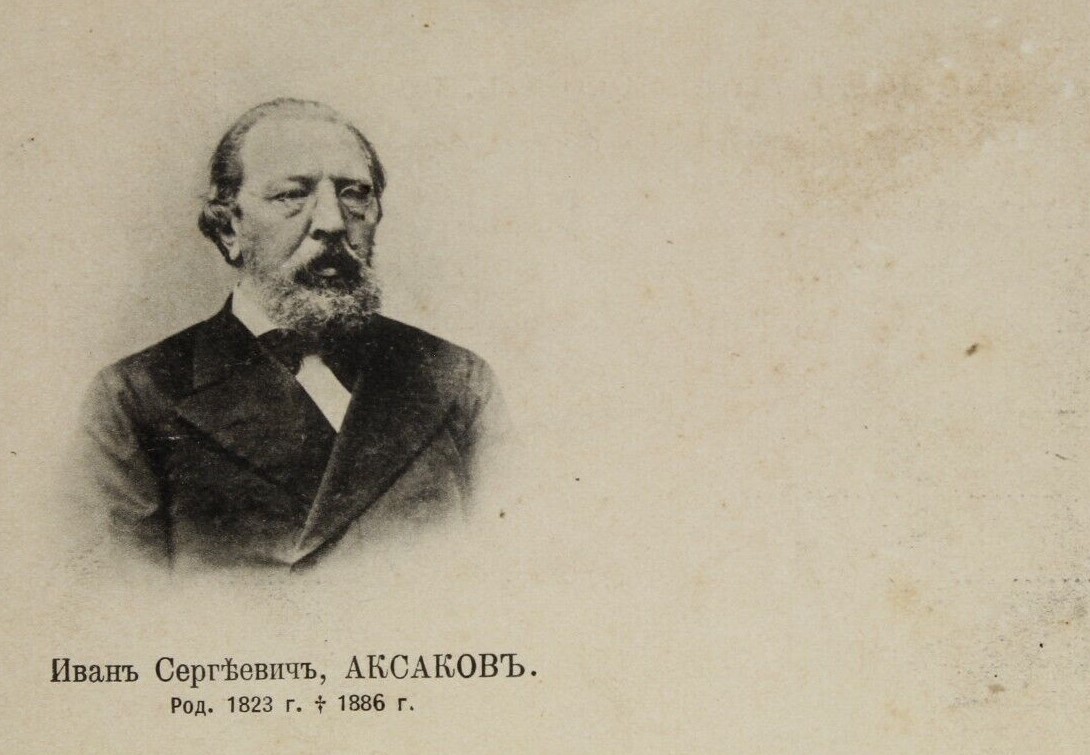One of the pioneers of the Slavic movement: Who is Sergeyevich Aksakov?
He advocated Slavic unity in his work on the Eastern Question.

(1817-1860) Constantine Russian idealist thinker. He is the son of Russian writer Aksakov. He grew up with a deep interest in language and literature, under the influence of his father, and history, under the influence of his mother, the daughter of a general. In 1832 he entered the Department of Theology at Moscow University. He joined Stankyevich's group during his student years. He met Belinski, Bakunin, and Granovski. After studying German idealism, he adopted Hegel's views. He followed in the footsteps of Hegel, although he adhered to a religious thought like all Slavic idealists in his last days.
Ivan Sergeyevich Aksakov (1823 - 1886) was a Russian littérateur and notable Slavophile.
Aksakov, who studied literature after university, got into a fierce argument in the press with his old friend Belinski in the evaluation of Gogol's work Dead Souls (1842). The struggle between Slavic idealists and Westerners reached its climax thereafter. Aksakov later became one of the defenders of the Slavism movement with the influence of Komyakov.
Adopting Orthodoxy based on the view that historical development is determined by the elements of religion and morality, Aksakov tried to show that the real forms of social and political life could only be built on this basis. Aksakov's studies on Russian history and language based on the idea of Slavism stem from this religious idealist view. Like other Russian Hegelians, Aksakov saw the driving force of the historical process on a religious basis.
He made use of the methods of history and logic in sociology; approached the problem with an idealist attitude in resolving social contradictions. These aspects bring him closer to Belinski and Granovski, who, like himself, rely on the Hegelian dialectic. However, while Belinski reconsidered Hegel's thoughts in line with the scientific understanding of history, Aksakov made a comeback and attempted to place a religious worldview on the basis of Hegelianism.
According to Aksakov, the feature that distinguishes man from inanimate nature is the free will God gave him. Man's belief makes him a moral being. Ethical elements related to religion in history are the direct and fundamental determinants of social and political life.
The state is an institution outside the layers of society and above society. In Aksakov's understanding of the state, state, and community, law and human freedom, state oppression and moral obligation are positioned as opposites. Aksakov, who rejects the state based on the biblical texts reflecting the anarchic tendencies of early Christianity, ultimately arrives at the idea of establishing divine sovereignty on earth.
Aksakov retained the privilege of large landholding in the distribution of land. According to him, an unwritten law was in force in Russia, which naturally determined the functions and relations of the state and the people. Considering the interests of a part of the large landowners who wanted the abolition of serfdom, Aksakov tried to combine strong absolutism with limited freedom in the domestic life of the country.
Aksakov organized the Slavic unity program in his work on the Eastern Question; This program was later broadcast by his brother Ivan Sergeyvic. Linguistic studies are also important. In his literary criticism writings, Aksakov expressed the need for art to serve social interests.
